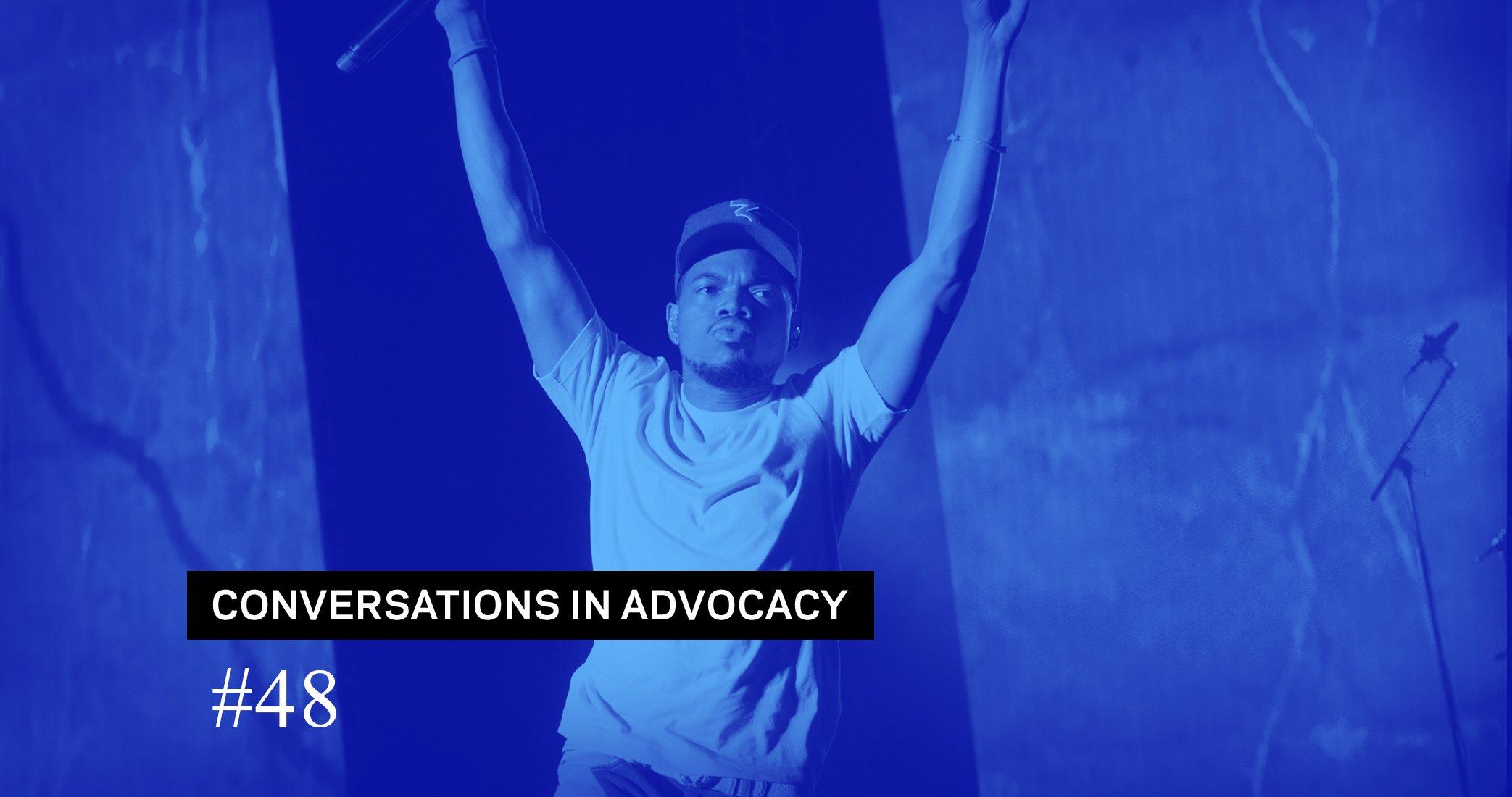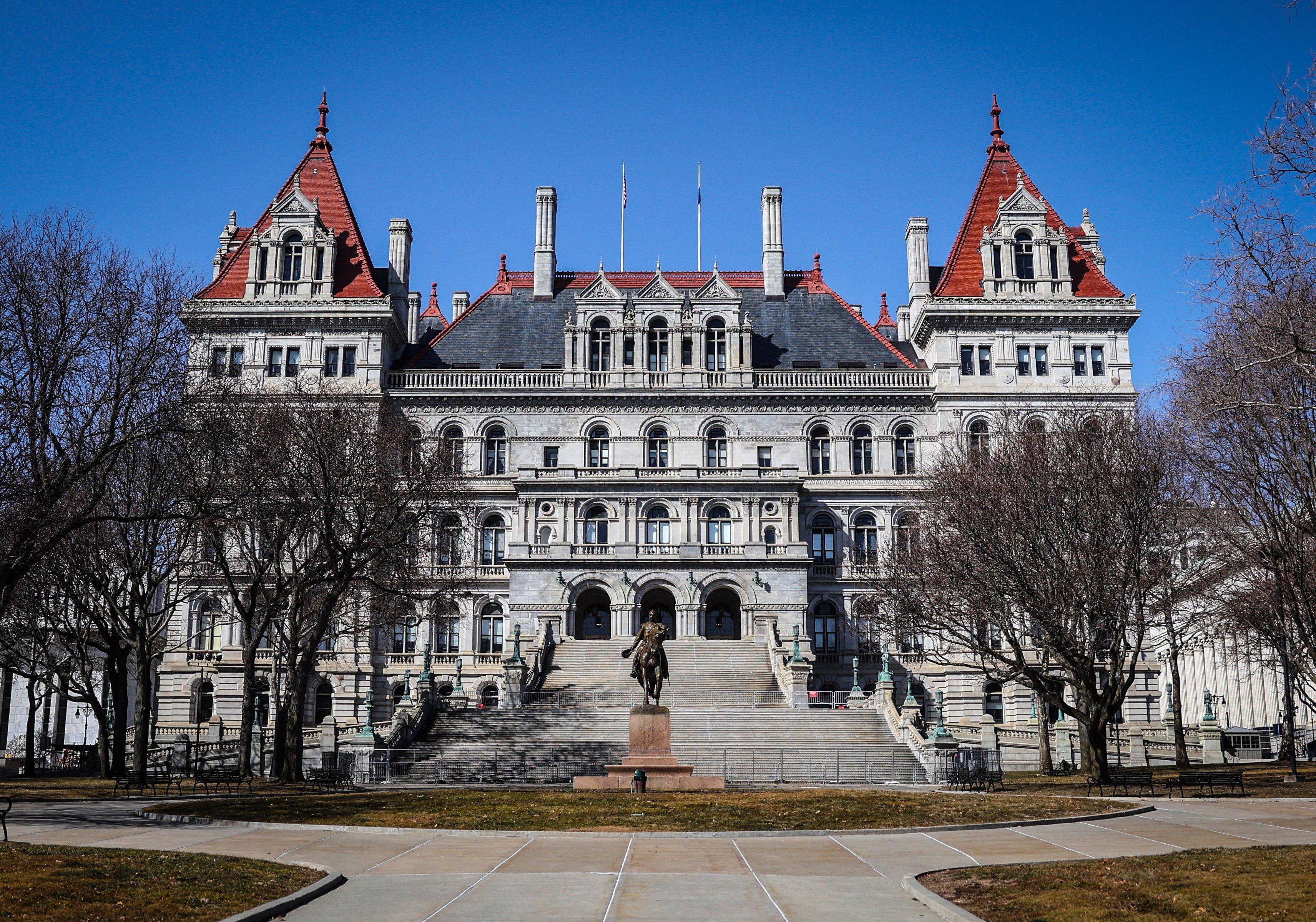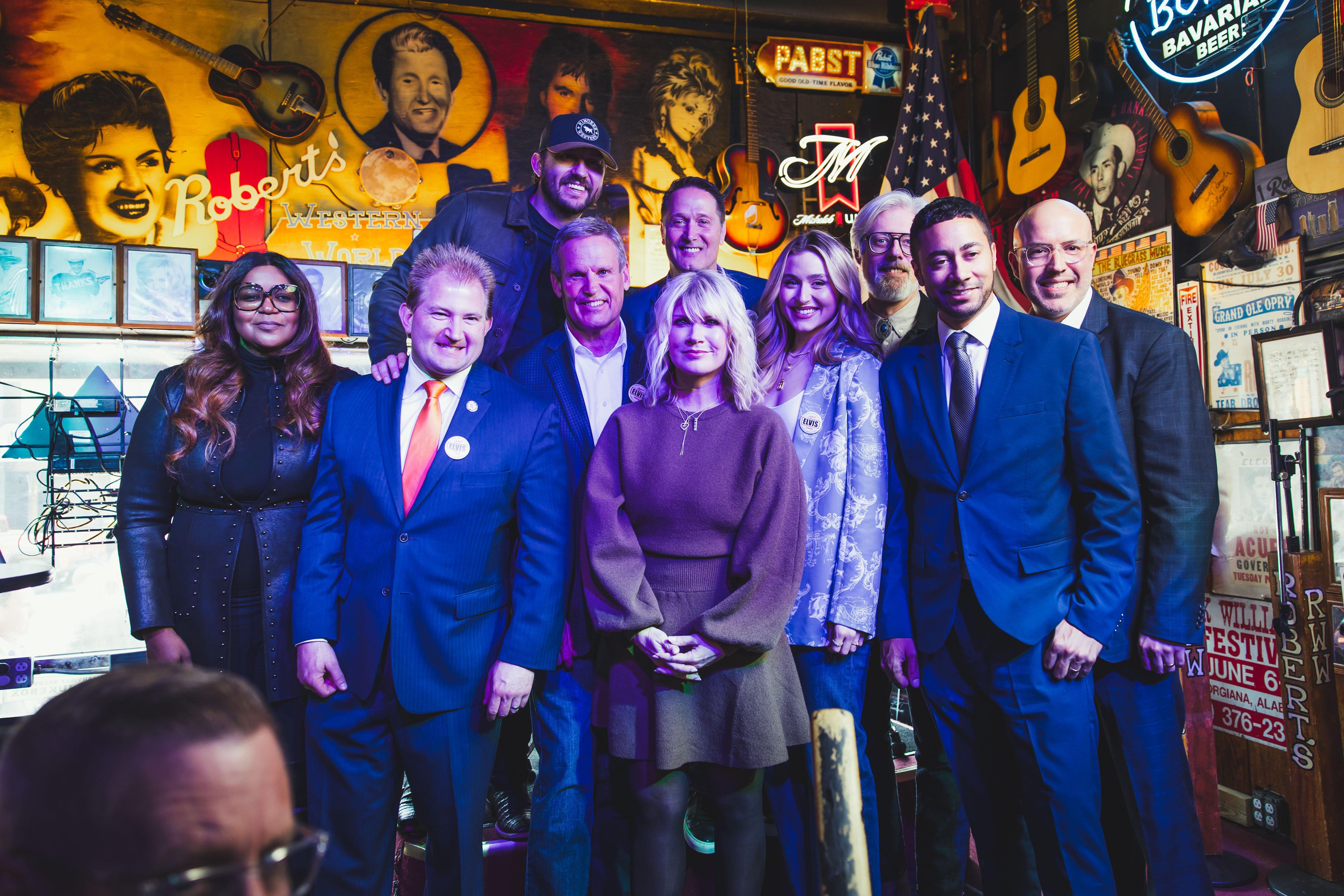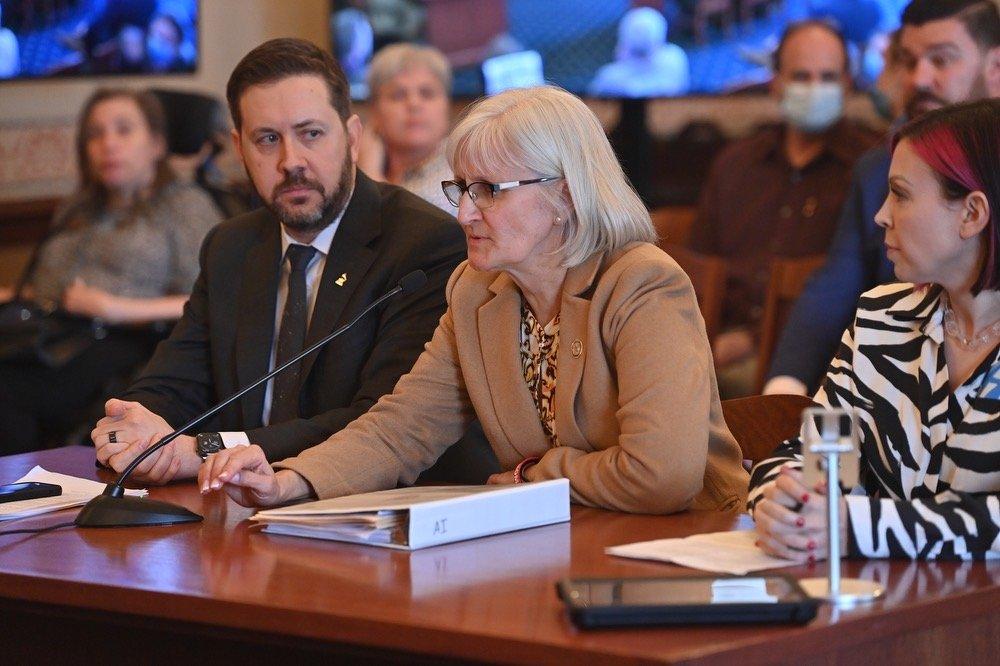Photo: Daniel Boczarski/Redferns/Getty Images

news
Chance The Rapper, Killer Mike, Meek Mill & More File Supreme Court Brief On Rap Lyrics
A group of artists that also includes 21 Savage, Yo Gotti and Fat Joe give the Supreme Court a "a primer on rap music and hip-hop" in defense of First Amendment rights for rappers
"Lyrics in music are protected as free speech. However, the notion that this bedrock principle would depend on the genre is an alarming one, especially for those in the world of rap and hip-hop." -Conversations In Advocacy #48
The 2012 arrest and subsequent trial of Jamal Knox, a black artist who raps under the name Mayhem Mal, stirred up the First Amendment issue of freedom of speech in rap and hip-hop. In Knox' case, his lyrics included what the Pennsylvania Supreme Court determined to threats toward police officers that weren't protected by free speech.
"This is a work of poetry," reads the response in an amicus brief filed with the Supreme Court this week. "It is not intended to be taken literally, something that a reasonable listener with even a casual knowledge of rap would understand."
With this collective effort, proliferating this baseline knowledge of rap is now seeing a new level of action and support. The group of artists behind it includes Chance The Rapper, Killer Mike, Yo Gotti, 21 Savage, Fat Joe and others, who filed the brief to serve as, "A primer on rap music and hip-hop."
The brief aims to educate Supreme Court justices, who average age is approximately 66, about the culture of the genre, focusing on the respect and perspective afforded to other genres that rap is also due.
"A person unfamiliar with what today is the nation’s most dominant musical genre or one who hears music through the auditory lens of older genres such as jazz, country or symphony," the brief reads, "may mistakenly interpret a rap song as a true threat of violence."
<blockquote class="instagram-media" data-instgrm-captioned data-instgrm-permalink="https://www.instagram.com/p/BvB-3GiA2N2/?utm_source=ig_embed&utm_medium=loading" data-instgrm-version="12" style=" background:#FFF; border:0; border-radius:3px; box-shadow:0 0 1px 0 rgba(0,0,0,0.5),0 1px 10px 0 rgba(0,0,0,0.15); margin: 1px; max-width:540px; min-width:326px; padding:0; width:99.375%; width:-webkit-calc(100% - 2px); width:calc(100% - 2px);"><div style="padding:16px;"> <a href="https://www.instagram.com/p/BvB-3GiA2N2/?utm_source=ig_embed&utm_medium=loading" style=" background:#FFFFFF; line-height:0; padding:0 0; text-align:center; text-decoration:none; width:100%;" target="_blank"> <div style=" display: flex; flex-direction: row; align-items: center;"> <div style="background-color: #F4F4F4; border-radius: 50%; flex-grow: 0; height: 40px; margin-right: 14px; width: 40px;"></div> <div style="display: flex; flex-direction: column; flex-grow: 1; justify-content: center;"> <div style=" background-color: #F4F4F4; border-radius: 4px; flex-grow: 0; height: 14px; margin-bottom: 6px; width: 100px;"></div> <div style=" background-color: #F4F4F4; border-radius: 4px; flex-grow: 0; height: 14px; width: 60px;"></div></div></div><div style="padding: 19% 0;"></div><div style="display:block; height:50px; margin:0 auto 12px; width:50px;"><svg width="50px" height="50px" viewBox="0 0 60 60" version="1.1" xmlns="https://www.w3.org/2000/svg" xmlns:xlink="https://www.w3.org/1999/xlink"><g stroke="none" stroke-width="1" fill="none" fill-rule="evenodd"><g transform="translate(-511.000000, -20.000000)" fill="#000000"><g><path d="M556.869,30.41 C554.814,30.41 553.148,32.076 553.148,34.131 C553.148,36.186 554.814,37.852 556.869,37.852 C558.924,37.852 560.59,36.186 560.59,34.131 C560.59,32.076 558.924,30.41 556.869,30.41 M541,60.657 C535.114,60.657 530.342,55.887 530.342,50 C530.342,44.114 535.114,39.342 541,39.342 C546.887,39.342 551.658,44.114 551.658,50 C551.658,55.887 546.887,60.657 541,60.657 M541,33.886 C532.1,33.886 524.886,41.1 524.886,50 C524.886,58.899 532.1,66.113 541,66.113 C549.9,66.113 557.115,58.899 557.115,50 C557.115,41.1 549.9,33.886 541,33.886 M565.378,62.101 C565.244,65.022 564.756,66.606 564.346,67.663 C563.803,69.06 563.154,70.057 562.106,71.106 C561.058,72.155 560.06,72.803 558.662,73.347 C557.607,73.757 556.021,74.244 553.102,74.378 C549.944,74.521 548.997,74.552 541,74.552 C533.003,74.552 532.056,74.521 528.898,74.378 C525.979,74.244 524.393,73.757 523.338,73.347 C521.94,72.803 520.942,72.155 519.894,71.106 C518.846,70.057 518.197,69.06 517.654,67.663 C517.244,66.606 516.755,65.022 516.623,62.101 C516.479,58.943 516.448,57.996 516.448,50 C516.448,42.003 516.479,41.056 516.623,37.899 C516.755,34.978 517.244,33.391 517.654,32.338 C518.197,30.938 518.846,29.942 519.894,28.894 C520.942,27.846 521.94,27.196 523.338,26.654 C524.393,26.244 525.979,25.756 528.898,25.623 C532.057,25.479 533.004,25.448 541,25.448 C548.997,25.448 549.943,25.479 553.102,25.623 C556.021,25.756 557.607,26.244 558.662,26.654 C560.06,27.196 561.058,27.846 562.106,28.894 C563.154,29.942 563.803,30.938 564.346,32.338 C564.756,33.391 565.244,34.978 565.378,37.899 C565.522,41.056 565.552,42.003 565.552,50 C565.552,57.996 565.522,58.943 565.378,62.101 M570.82,37.631 C570.674,34.438 570.167,32.258 569.425,30.349 C568.659,28.377 567.633,26.702 565.965,25.035 C564.297,23.368 562.623,22.342 560.652,21.575 C558.743,20.834 556.562,20.326 553.369,20.18 C550.169,20.033 549.148,20 541,20 C532.853,20 531.831,20.033 528.631,20.18 C525.438,20.326 523.257,20.834 521.349,21.575 C519.376,22.342 517.703,23.368 516.035,25.035 C514.368,26.702 513.342,28.377 512.574,30.349 C511.834,32.258 511.326,34.438 511.181,37.631 C511.035,40.831 511,41.851 511,50 C511,58.147 511.035,59.17 511.181,62.369 C511.326,65.562 511.834,67.743 512.574,69.651 C513.342,71.625 514.368,73.296 516.035,74.965 C517.703,76.634 519.376,77.658 521.349,78.425 C523.257,79.167 525.438,79.673 528.631,79.82 C531.831,79.965 532.853,80.001 541,80.001 C549.148,80.001 550.169,79.965 553.369,79.82 C556.562,79.673 558.743,79.167 560.652,78.425 C562.623,77.658 564.297,76.634 565.965,74.965 C567.633,73.296 568.659,71.625 569.425,69.651 C570.167,67.743 570.674,65.562 570.82,62.369 C570.966,59.17 571,58.147 571,50 C571,41.851 570.966,40.831 570.82,37.631"></path></g></g></g></svg></div><div style="padding-top: 8px;"> <div style=" color:#3897f0; font-family:Arial,sans-serif; font-size:14px; font-style:normal; font-weight:550; line-height:18px;"> View this post on Instagram</div></div><div style="padding: 12.5% 0;"></div> <div style="display: flex; flex-direction: row; margin-bottom: 14px; align-items: center;"><div> <div style="background-color: #F4F4F4; border-radius: 50%; height: 12.5px; width: 12.5px; transform: translateX(0px) translateY(7px);"></div> <div style="background-color: #F4F4F4; height: 12.5px; transform: rotate(-45deg) translateX(3px) translateY(1px); width: 12.5px; flex-grow: 0; margin-right: 14px; margin-left: 2px;"></div> <div style="background-color: #F4F4F4; border-radius: 50%; height: 12.5px; width: 12.5px; transform: translateX(9px) translateY(-18px);"></div></div><div style="margin-left: 8px;"> <div style=" background-color: #F4F4F4; border-radius: 50%; flex-grow: 0; height: 20px; width: 20px;"></div> <div style=" width: 0; height: 0; border-top: 2px solid transparent; border-left: 6px solid #f4f4f4; border-bottom: 2px solid transparent; transform: translateX(16px) translateY(-4px) rotate(30deg)"></div></div><div style="margin-left: auto;"> <div style=" width: 0px; border-top: 8px solid #F4F4F4; border-right: 8px solid transparent; transform: translateY(16px);"></div> <div style=" background-color: #F4F4F4; flex-grow: 0; height: 12px; width: 16px; transform: translateY(-4px);"></div> <div style=" width: 0; height: 0; border-top: 8px solid #F4F4F4; border-left: 8px solid transparent; transform: translateY(-4px) translateX(8px);"></div></div></div></a> <p style=" margin:8px 0 0 0; padding:0 4px;"> <a href="https://www.instagram.com/p/BvB-3GiA2N2/?utm_source=ig_embed&utm_medium=loading" style=" color:#000; font-family:Arial,sans-serif; font-size:14px; font-style:normal; font-weight:normal; line-height:17px; text-decoration:none; word-wrap:break-word;" target="_blank">Wisdom.</a></p> <p style=" color:#c9c8cd; font-family:Arial,sans-serif; font-size:14px; line-height:17px; margin-bottom:0; margin-top:8px; overflow:hidden; padding:8px 0 7px; text-align:center; text-overflow:ellipsis; white-space:nowrap;">A post shared by <a href="https://www.instagram.com/killermike/?utm_source=ig_embed&utm_medium=loading" style=" color:#c9c8cd; font-family:Arial,sans-serif; font-size:14px; font-style:normal; font-weight:normal; line-height:17px;" target="_blank"> Killer Mike</a> (@killermike) on <time style=" font-family:Arial,sans-serif; font-size:14px; line-height:17px;" datetime="2019-03-15T13:40:18+00:00">Mar 15, 2019 at 6:40am PDT</time></p></div></blockquote> <script async src="//www.instagram.com/embed.js"></script>
Killer Mike, a well-respected and GRAMMY-winning rapper and activist, contextualized the special treatment of rap lyrics as racially motivated.
"Outlaw country music is given much more poetic license than gangster rap, and I listen to both," he said. "And I can tell you that the lyrics are dark and brutal when Johnny Cash describes shooting a man in Reno just to watch him die and when Ice Cube rapped about a drive-by shooting early in his career."
"It’s no different from stop and frisk,” he continued. “It’s another form of racial profiling."
The brief encourages the court to hear the appeal of Knox based on his First Amendment rights, while also working "to put rap music, which is a heavily stigmatized form of expression associated with negative stereotypes and often subject to misinterpretation, in the context of the history and conventions of the genre."
Hip-hop not only holds court as the most popular genre amongst consumers, but its popularity only continues to grow. The brief hopes to shape a more conscious future surrounding the genre. One way it contextualizes its culture is by pointing to past examples of personal expression perceived as real threats against authority, most notably with Ice-T's controversial 1992 song, "Cop Killer."
The brief reminds its readers, "Ice-T defended himself, saying, 'I’m singing in the first person as a character who is fed up with police brutality. . . If you believe that I’m a cop killer, you believe David Bowie is an astronaut.'"
Hip-Hop's Huge Year In Streaming: How Rap Reigned Supreme In 2018

Photo: Aaron Foster via Getty Images
news
Ticketing Reforms Make A Big Leap In Maryland: Here's What You Need To Know
This legislation introduces a series of pivotal measures aimed at safeguarding consumers and enhancing transparency in the ticketing industry.
The Recording Academy celebrated last week the advancement of improved ticketing reforms as Maryland achieves a groundbreaking milestone with the passage of SB 539. This legislative triumph not only means a new era of consumer and artist protections for live event tickets, but also positions Maryland as a national leader in holding ticket resellers accountable for fraudulent and deceptive practices hosted on their platforms.
"While fans suffer because of this broken system, so do artists" declares a collective statement of support from the Fix the Tix Coalition, which includes the Recording Academy as a founding member. "Predatory resellers view tickets as nothing more than commodities to be traded for outrageous sums, throwing away the cultural and communal value they provide for our society. They exist to undermine the hard work, talent, and livelihoods of artists, inserting themselves as unnecessary and unwanted middlemen who make their money off the backs of the artists and venues who partner to make these events happen."
This legislation introduces a series of pivotal measures aimed at safeguarding consumers and enhancing transparency in the ticketing industry. First, the bill prohibits deceptive practices such as the selling of speculative or counterfeit ticket sales, shielding concertgoers from exploitative practices used by some ticket brokers and resellers. Second, online ticket resale platforms will face increased accountability under Maryland's Consumer Protection Act.
Additionally, transparent pricing practices will be enforced throughout the ticket purchasing process, ensuring consumers have clear and accurate information. Most notably, this includes standards that ensure a breakdown of the face value price, and any fees, is made clear to the consumer throughout the purchase.
"We're getting used to paying these exorbitant prices. It's funny, now if you get a ticket for face value, that's apparently a big deal," stated Delegate C.T. Wilson, who introduced the legislation in Maryland's House. "That shouldn't be a big deal. We've been tricked into accepting this."
The enforcement of SB 539 seeks to dismantle predatory practices that have long plagued the ticketing industry. From the moment a show is announced, genuine fans are confronted with the uphill battle against scalpers and resellers, who exploit loopholes and employ deceptive tactics to profit at the expense of both fans and artists.
"Legislation like SB 539 is vital to protecting fans, preserving equitable access to entertainment, and restoring balance to the currently broken ticketing ecosystem," the collective statement emphasizes. By removing the profit motive from these practices, such as using illegal bots and price gouging, Maryland's bold legislative actions sets a precedent for other states to follow suit in protecting consumer rights and ensuring a better concert experience for fans and artists alike.
The Recording Academy was one of the many stakeholders who actively worked to pass the legislation and will continue to work towards equitable ticketing practices across the country. There is a collective aspiration that the passage of this legislation in Maryland will serve as a catalyst for change at both the local and federal level.
The Academy remains a staunch advocate for ticketing reform, ensuring that every fan can enjoy the magic of live entertainment without fear of deception or exploitation.
The New York State Senate Passes Bill to Protect Creative Expression: Here's What You Need To Know

Photo: Thomas A. Ferrara/Newsday RM via Getty Images
news
The New York State Senate Passes Bill to Protect Creative Expression: Here’s What You Need To Know
Led by Senators Hoylman-Sigal and Bailey, the senate passage of S. 1738 continues the forward momentum for creative expression in New York, signaling the state senate’s commitment to upholding free speech.
In a significant stride towards protecting musicians' creative expression, the New York State Senate passed S. 1738 on March 27. This bill is aimed at safeguarding the free speech of artists, a fundamental part of making music. The Recording Academy has been a staunch advocate of S. 1738, working to advance the legislation in the last two legislative sessions of 2022 and 2023.
Led by Senators Hoylman-Sigal and Bailey, the senate passage of S. 1738 continues the forward momentum for free expression in New York, signaling the state senate’s commitment to upholding the fundamental rights of creators to express themselves through their art. The legislation stipulates that a defendant's artistic works, such as song lyrics, cannot be used as evidence against them in a criminal trial unless it can be proven beyond reasonable doubt that these expressions are admissible.
Researchers have identified nearly 700 cases where lyrics have been used as evidence against hip hop artists, including several dozen in New York. Protecting the First Amendment rights of New York artists is critical to prevent a chilling effect on the state’s music community that plays a vital role in the economic landscape of New York. The music industry in New York contributes close to $20 billion to the state's GDP annually, supporting over 200,000 jobs. From iconic recording studios in New York City to vibrant music scenes in upstate cities like Albany and Buffalo, the state's diverse music community contributes to its reputation as a global hub for creativity and innovation. New York attracts millions of visitors each year to experience live performances, music festivals, and other events throughout the state.
The Recording Academy's support for this legislation in New York is part of a broader effort to champion similar legislation across the country at the state level. In California and Louisiana, the Recording Academy played a pivotal role in passing new laws that solidified the protection of creators' free speech rights. Additionally, in Maryland, Missouri, and Georgia, the Academy has been advancing similar legislation. A recent Advocacy Day in Annapolis, supporting the PACE Act, allowed Recording Academy members from Maryland to meet with legislators and urge them to protect creative and artistic expression.
At the federal level, the Recording Academy has been advocating for the Restoring Artistic Protection Act, also known as the RAP Act since its introduction. Just like at the local level, this legislation aims to protect the First Amendment rights of artists nationwide. Recording Academy CEO, Harvey Mason jr., and Chair of the Recording Academy's Black Music Collective, Rico Love, released a statement during the introduction of the RAP Act in 2022:
"Today's introduction of the RAP Act in the House of Representatives is a crucial step forward in the ongoing battle to stop the weaponization of creative expression as a prosecution tactic," they stated, “ and we will continue to work…to advance the protections in this bill that ensure all artists can create freely without fear of their work being criminalized."
Now, with the successful passage of S. 1738 in the New York State Senate the Recording Academy will continue to work with Academy members to help advocate for this necessary legislation, including bringing Academy members to Albany next month to advocate for the bill’s passage through the state assembly. Ultimately, the goal is to see S. 1738 signed into law, providing much-needed protections for musicians and affirming New York's commitment to upholding the principles of free speech and artistic expression.
As the legislative journey continues, Recording Academy advocates will continue to advance this critical piece of legislation and ensure that the voices of musicians are valued and protected in the state of New York.
A Victory In Tennessee: Governor Bill Lee Signs The ELVIS Act Into Law

Photo: Brandon Hull
news
A Victory In Tennessee: Governor Bill Lee Signs The ELVIS Act Into Law
The signing ceremony hailed as the "coolest bill signing ever" by Gov. Lee, took place at Robert's Western World, an iconic Honky Tonk in downtown Nashville.
On Thursday, March 21, the Recording Academy celebrated an extraordinary moment for Tennessee's vibrant music community as Governor Bill Lee signed the groundbreaking ELVIS Act into law. The signing ceremony hailed as the "coolest bill signing ever" by Gov. Lee, took place at Robert's Western World, an iconic Honky Tonk in downtown Nashville, showcasing the deep connection between music and culture in the state.
Surrounded by Country music stars Luke Bryan and Chris Janson, Gov. Lee emphasized the significance of protecting musicians, acknowledging their role in shaping Tennessee's identity and history. "This industry has helped forge and created the identity of this state" stated Gov. Lee, "and what you've done is not only created and forged our identity and our history here, but much of what is happening in this country."
When discussing the implications of what this legislation means for creators across the state, Gov. Lee highlighted the dangers of AI now being prevented. "[AI] can steal those gifts, it can impersonate those gifts, it can subsequently create fake works that rob those artists of their intellectual property that has made their success, and we can't let that happen. Tennessee should lead on this issue, and we are, this is the first bill of its kind."
Also attending the signing ceremony were Gebre Waddell, the Academy's national Secretary/Treasurer and Chair of the Tennessee Entertainment Commission, artists Natalie Grant and Matt Maher, who testified in support of the ELVIS Act before the Tennessee legislature, and additional artists and elected leaders representing the Academy's Memphis and Nashville Chapters.
In January, the Recording Academy joined Gov. Lee, House Majority Leader William Lamberth and Senate Majority Leader Jack Johnson, and dozens of artists, songwriters, music executives, and industry groups to introduce the Ensuring Likeness, Voice, and Image Security (ELVIS) Act. The Recording Academy's support for the ELVIS Act, including advocacy days and mobilization of music creators, played a pivotal role in the bill's success. By uniting Tennessee's artists and legislators, the Recording Academy spearheaded a collective effort to combat AI fraud and safeguard the authenticity of music creation.
Tennessee has a booming music community that supports more than 61,000 jobs across the state and contributes $5.8 billion to the state's GDP. During the signing ceremony, Chris Janson highlighted his gratitude for this legislation supporting the growing music community in Tennessee. "This is a serious thing. I am a songwriter first; I've always said that; I'm an artist second. I love what I do, I'm grateful for my job, and I am so grateful for leadership who cares." Janson directly thanked the members of Tennessee's General Assembly for supporting this legislation. "We are grateful for you guys protecting our community," declared Janson, "Nashville is nothing without the music community."
The signing of the ELVIS Act marked a historic milestone as the first legislation in the nation focused on safeguarding the core elements of artistic identity, including voice and likeness, in the context of AI. This groundbreaking law updates Tennessee's existing right to publicity, extending protections to songwriters, performers, and all individuals' voices from exploitation by artificial intelligence.
The swift progress of the ELVIS Act through the Tennessee legislature reflects the industry's urgent need for such protections. "The Recording Academy celebrates the passage of the ELVIS Act as a groundbreaking achievement in the effort to protect human creators in the age of AI," said Recording Academy CEO Harvey Mason jr. "This milestone represents the power of collaboration, and it was a privilege to work with our partners in the Human Artistry Campaign, Governor Lee, and the Tennessee state legislature to move the ELVIS Act forward. Today is just the beginning — as AI continues to develop, the Recording Academy and our members will continue to support meaningful legislation across the country that uplifts music people and human creativity."
Looking ahead, the ELVIS Act sets a precedent for future legislation at both the state and federal level. As the Recording Academy remains committed to supporting and protecting human creativity, the ELVIS Act serves as a beacon of hope for music creators everywhere, ensuring a future where artistic expression thrives free from exploitation.
How The Recording Academy Is Redoubling Its Efforts To Protect Creators From AI Risks

Photo courtesy of the Illinois Senate Democratic Caucus
news
How The Recording Academy Is Redoubling Its Efforts To Protect Creators From AI Risks
A piece of legislation in Illinois addresses a pressing concern for musicians in Illinois – the rise of digital replicas that impersonate their unique voices and likenesses without consent.
The Recording Academy continues to work across the country to protect creators from being exploited or manipulated by artificial intelligence (AI).
Last week, attention was focused on the Illinois General Assembly, where hearings in both the House and Senate dove into HB 4875/SB 3325, critical legislation protecting the right of musicians and artists to control their image, likeness, and voice. The legislation, which has been championed by the Recording Academy since its inception, is sponsored by Rep. Gong-Gershowitz and Senator Edly-Allen and seeks to address the challenges posed by AI for creatives.
Among the witnesses who testified at the two hearings were Recording Academy Chicago Chapter Board Members Jeff Becker and Dani Deahl. Becker is an attorney and Chair of the Entertainment and Media Law Practice Group at Swanson, Martin & Bell and Deahl is a prominent artist, DJ, and producer based in Chicago.
HB 4875/SB 3325 represents a crucial step towards modernizing Illinois's Right of Publicity Act for the AI era. By granting additional enforcement rights and remedies, the bill aims to shield musicians from exploitation by generative AI systems. While existing copyright laws offer some protection, the amendments directly address gaps in safeguarding an artist's name, image, likeness, and voice.
During his testimony, Becker emphasized the urgency of updating existing laws to accommodate the rapid advancements in technology. He expressed, "As technology has evolved, our law must adapt to keep up. Specifically, artificial intelligence has provided new ways for people to have their image, likeness, and voice exploited in a manner that our current law didn't contemplate."
Deahl echoed these sentiments, emphasizing the importance of safeguards to prevent the abuse of AI technology. "As we embrace AI's potential, we must also be prepared for the risks it presents that are already here. The clearest example of these risks is the ability of AI to steal people's images and voices. I myself have had the unsettling experience of hearing my voice replicated by AI, delivering messages I never endorsed. This violation of identity is a profound invasion of personal autonomy."
The legislation addresses a pressing concern for musicians in Illinois – the rise of digital replicas that impersonate their unique voices and likenesses without consent. This phenomenon poses a significant threat to artistic integrity and individual rights.
"Nothing is more fundamental to each of us than our identities, and everyone should have the right to decide what words come out of their mouths and how their likeness is used," Deahl remarked.
During questioning in the House hearing for HB 4875, Becker clarified the legislation stating, "The violation is utilizing technology to imitate somebody else. If you're trying to sound like somebody else and make money selling music sounding like that other person, that's the violation."
The bills received overwhelming support in both committees and will next move to the House floor for a vote by the full Illinois House of Representatives.
Illinois boasts a rich and diverse music community, contributing significantly to the state's cultural and economic landscape. With nearly 65,000 jobs supported by the industry and a GDP contribution exceeding $4 billion annually, the stakes for protecting artists' rights are high. From iconic venues to world-renowned festivals like Lollapalooza, Illinois has nurtured legendary talents and continues to be a hub of musical innovation.
Join the Recording Academy in supporting the passage of HB 4875/SB 3325, a critical piece of legislation to safeguard the integrity and rights of Illinois musicians. Send a message to Illinois lawmakers through our action center. Your support has the opportunity to ensure artists remain in control over their identities and creative output in the age of AI.
